You might hear abnormal sounds from vehicles running on the road, like ‘Knock’ ‘Knock’. It means that this sound indicates that an undesirable combustion process is taking place in the engine.
This abnormal combustion is known as Detonation. Due to the ‘Knock’ ‘Knock’ sound, this phenomenon is also known as Knocking. In this article, we will see what actually happens inside the engine during detonation and much more about that.
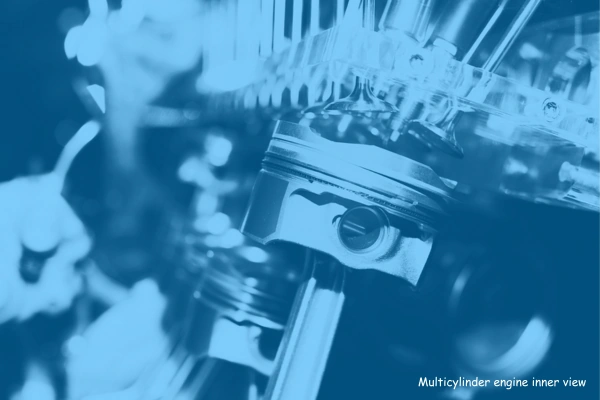
In this article, we’re going to discuss:
- Normal combustion process:
- Detonation in IC engine:
- Changes due to Detonation:
- Detonation/Knocking in SI engine:
- Detonation/Knocking in CI engine:
- Difference between Knocking/Detonation in SI and CI engine:
- Causes of Detonation in an engine:
- Effect of detonation in an engine:
- How to prevent engine detonation?
Normal combustion process:
Detonation is the abnormal combustion process carried out in an IC engine that has large effects on the engine. But before understanding a detonation (which is an abnormal combustion process), it is necessary to have knowledge about the normal combustion process. So let’s start it.
Let’s take the case of an SI engine, in which normal combustion is carried out in an engine is as follows:
- In suction stroke, fresh air-fuel mixture enters into the chamber, Piston compreses the mixture to high pressure.
- At the end of compression stroke, spark plug produces the spark and ignites the mixture.
- The combustion starts and with steady rise in pressure, the flame progresses smoothly with consuming charge inside the chamber.
So in such a way normal combustion process occurs. Now let’s see what happens during Detonation in an IC engine.
Detonation in IC engine:
Detonation is defined as a sudden explosive combustion process occurs due to the burning of end-gas (An unburnt air-fuel mixture) that produces high-pressure waves and sound inside the cylinder.
In this case, at the end of the compression stroke, due to the auto-ignition of unburnt end-gases, an explosive combustion occurs. It produces high vibration waves and noise that hardly applies the hammering force on the piston.
Due to the detonation, a high-intensity pinging sound is produced inside the engine which is like a ‘knock’ ‘knock’. Hence this phenomenon is also known as the Knocking.
The detonation has a bad impact on the overall engine. The lesser extent of detonation can cause the bushings and bearings to wear. While long time detonation in ic engine results in the bending of the connecting rod, breakage of the piston, melting of valves as well as damage to the cylinder head.
Detonation is observed in petrol as well as in diesel engines. In petrol (SI) engines, the detonation is caused due to the auto-ignition while in diesel engines (CI engines) detonation is caused due to the high ignition lag. We will see this in more detail.
Autoignition: The burning of unburnt air-fuel mixture inside combustion chamber apart from the desired normal combustion started by spark plug and this burning started due to the unburnt air-fuel mixture reached to self-ignition temperature.
In modern engines, the knock sensor is used which senses the knocking in the engine and sends a signal to the ECM for preventing the knocking by retardation of spark timing.
Changes due to Detonation:
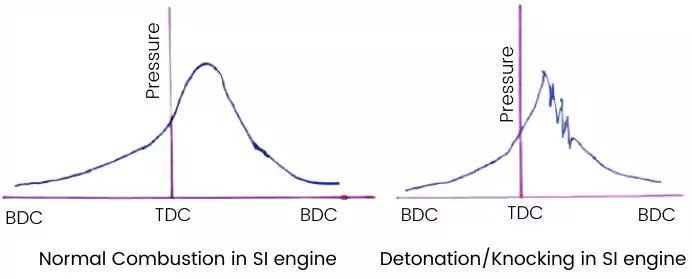
Above pressure (P) vs crank angle (θ) graph shows the difference between the normal and abnormal combustion process in the case of SI engine.
In the abnormal combustion after the compression, there are high fluctuations in pressure which are due to the detonation/knocking. While in normal combustion, a steady and smooth curve is observed.
Let’s see particularly detonation in SI (Spark ignition) and CI (Compress ignition) engines.
Detonation/Knocking in SI engine:
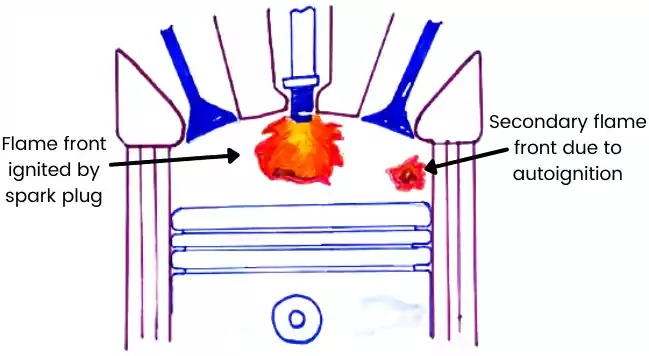
In the SI (Spark Ignition) engine, when the air-fuel mixture is compressed, the spark plug produces the spark and ignites the fuel. As soon as fuel ignites, the flame front starts to propagate with consuming charge
But at the same time, another one or more secondary flames front forms due to the igniting of end gases (unburnt air-fuel mixture).
This undesirable one or more secondary flame front produced outside of normal flame are not produced due to spark plug. It arises due to reach at self-ignition temperature due to the presence of high temperature inside the combustion chamber or Hot spots.
Hence, when these flames fronts collide which each other, it produces high shockwaves and pinging sound. Hence such an abnormal combustion process is also known as the Pinging.
In the SI engine, detonation occurs after the air-fuel mixture combustion is started by a spark plug.
Detonation/Knocking in CI engine:
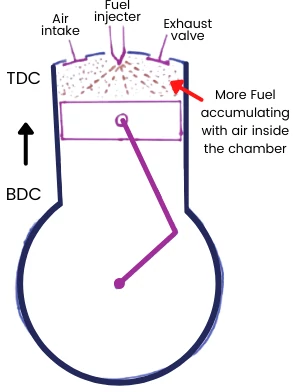
In the normal combustion of the CI engine, air is sucked and then compressed by the piston. At the end of compression, the fuel injector sprays the fuel into the high-temperature compressed air.
The fuel gets ignited and flames smoothly propagate throughout the cylinder with consuming the air-fuel mixture.
While In the case of detonation in the CI engine, at the end compression (BDC to TDC) of air, the fuel injector sprays the fuel into the air. But due to the high ignition lag, more unburnt fuel accumulates inside the chamber.
When this lot of fuel accumulated inside the chamber reaches self-ignition temperature, it gets ignited, a large explosion takes place inside the chamber which applies the opposite force to the piston movement during compression stroke.
Therefore, this phenomenon creates a high pinging sound and pressure pulses which has a bad effect on the engine.
In the CI engine, the detonation process is observed at the start of the combustion process.
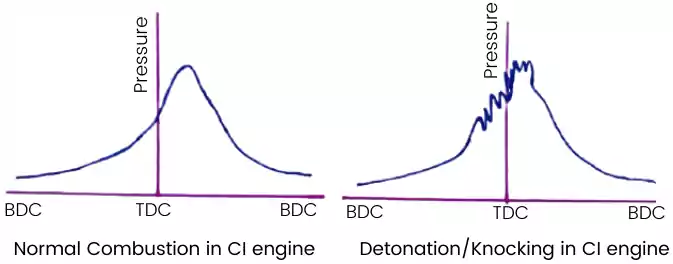
The pressure pulses inside the chamber immediately increase before the end of compression. Thus, pressure variations are obtained before the end of compression, as shown in the above graph.
Difference between Knocking/Detonation in SI and CI engine:
| Sr. No. | Knocking in SI engine | Knocking in CI engine |
|---|---|---|
| 1 | In an SI engine, knocking occurs after the mixture is ignited by the spark plug. | In a CI engine, knocking occurs at starting of the combustion process. |
| 2 | Knocking causes due to low ignition lag. | Knocking causes due to the high ignition lag. |
| 3 | Octane fuel is used in the engine as anti-knocking. | Cetane fuel is used in the engine as anti-knocking. |
| 4 | Reducing engine size reduces the knocking in SI engine. | Increasing engine size reduces the knocking in the CI engine. |
Causes of Detonation in an engine:
The factors responsible for detonation in an SI engine are as follows:
- High compression ratio.
- Autoignition
- Less ignition lag.
- High self-ignition temperature of the fuel.
- High temperature of the inlet air-fuel mixture.
- More quantity of inlet air-fuel mixture.
- Hot spots (Overheated area inside chamber)
- Due to use of low octane fuel.
The factors responsible for detonation in a CI engine are as follows:
- High ignition lag
- High engine speed
- Due to the use of low cetane fuel
- Less temperature and pressure of intake fuel and air
Effect of detonation in an engine:
The effects of the detonation on the engine are as follows:
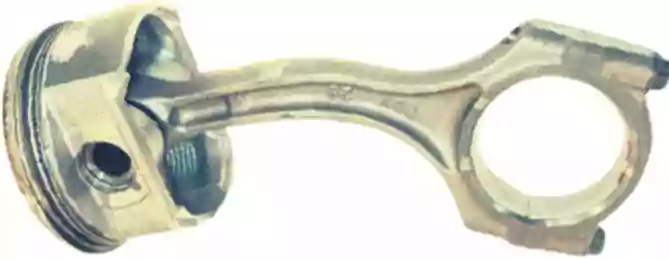
- Bending of connecting rod (As shown above).
- Scuffing of the cylinder bore.
- Breaking of piston head and piston rings.
- Erosion of cylinder head
- Loss of engine power.
- Produces the high intensity sound waves.
- Causes pre-ignition due to high combustion temperature.
- Damage to spark plug.
- Melting of valves.
How to prevent engine detonation?
The detonation in an SI engine can be controlled by the following ways:
- Decreasing intake manifold pressure.
- Retarding spark timing.
- Reducing the compression ratio.
- Using the high octane fuel.
- Reducing the intake temperature of air.
- Reducing peak cylinder pressure.
- Reducing the engine size.
- Increasing the amount of intake fuel.
The detonation in the CI engine can be controlled by the following ways:
- Using high cetane fuel helps to reduce the ignition lag.
- Increasing engine size.
- Increasing the intake fuel and air temperature.
- Using the supercharging or turbocharging.
FAQ’s:
-
What causes detonation in engine?
In SI engine detonation causes due to the low ignition lag while in CI engine detonation causes due to the High ignition lag.
-
What is the difference between knocking or detonation in SI and CI engine?
In SI engine knocking causes due to low ignition lag while In CI engine knocking causes due to high ignition lag.
-
Why does advanced timing cause detonation?
Advanced spark timing gives more time to combustion and reduces the propagation speed of primary flame therefore in such period end gases (Unburnt mixture) ignites which results in knocking occurs.
-
Can detonation cause overheating?
Yes, it is an explosive process that creates high pressure, temperature inside the engine.
-
Can detonation cause bearing failure?
Yes, due to the detonation high forces acts on the piston which causes the failure of the bearings.
Last words:
So friends, Detonation is the abnormal combustion that badly affects the vehicle engine. It occurs in both types, petrol and diesel engines with different reasons for that as compared to each other. As discussed above, there are many ways by which we can reduce such problem from our vehicle engine.
If you have any kind of queries about this article then be free and ask what you want to know and if you like this article then don’t forget to share it with your friends.